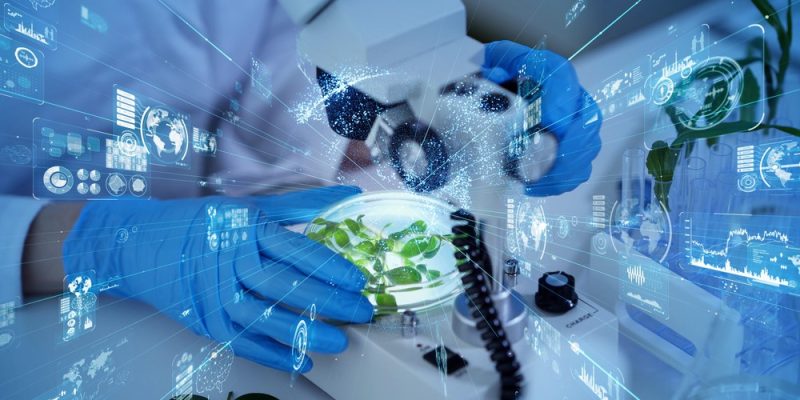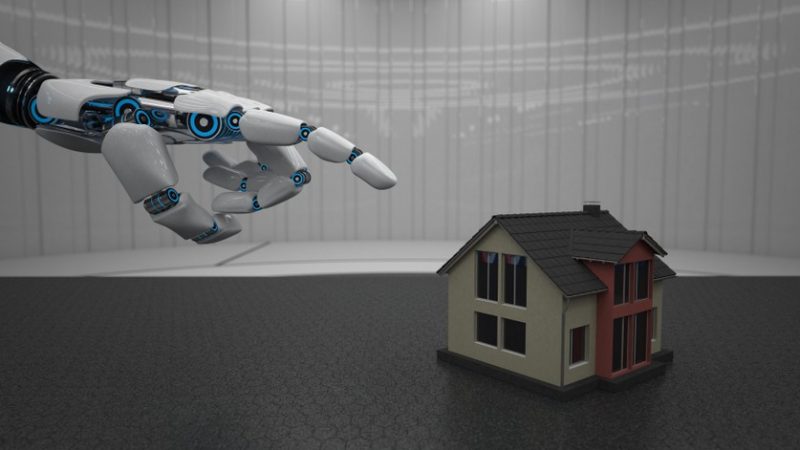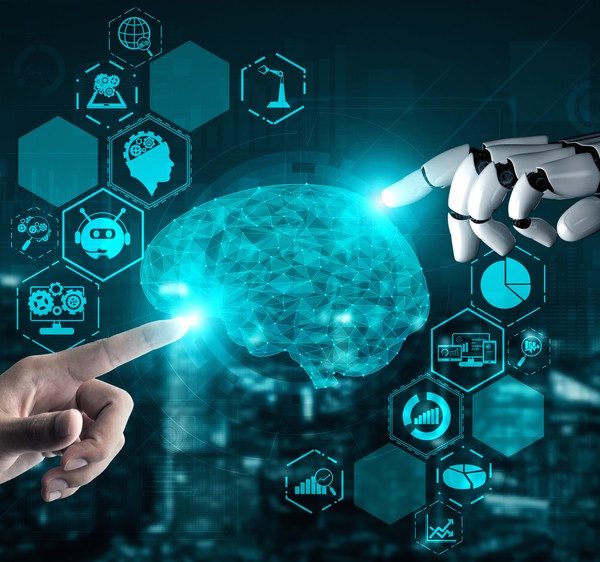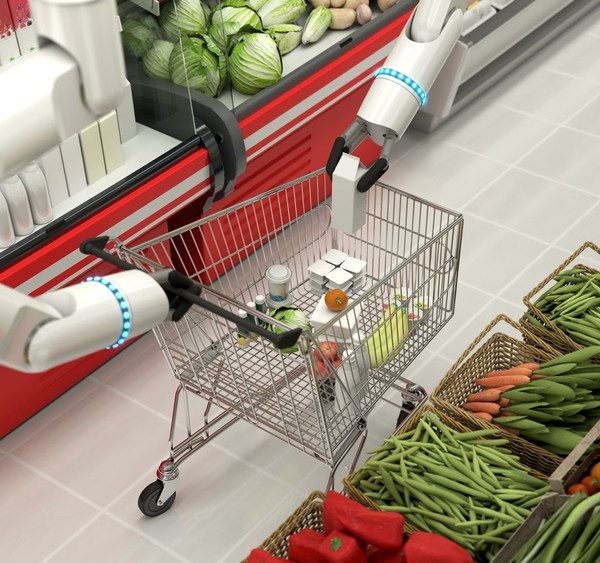
AI in Food and Beverage Industry: Use Cases & Benefits
Artificial intelligence (AI) is the field of computer science that involves creating intelligent machines capable of completing tasks that typically require human intelligence. These tasks may include but are not limited to visual perception, speech recognition, decision-making, and language translation. In today’s constantly changing business environment, AI can offer significant advantages to food and beverage companies looking to remain competitive.
Enhance the Supply Chain
One potential application of AI is in enhancing the supply chain and operational processes of these companies. By using AI to analyze and process data, food and beverage companies can gain valuable insights into their operations and supply chain, enabling them to make more informed decisions and optimize their processes for greater efficiency and profitability.
Improve the Customer Service
Furthermore, AI can be used to improve customer service and personalize the customer experience. By analyzing customer data, AI can identify patterns and preferences, allowing food and beverage companies to tailor their products and services to the specific needs of their customers.
AI holds tremendous promise for the food and beverage industry, offering a wide range of potential benefits from improved supply chain and operations processes to enhanced customer experiences. As such, it is essential that companies in this industry consider the potential of AI and explore how it can be used to drive growth and stay competitive in the rapidly evolving business landscape.
Enhance Food Quality and Safety
Recently, the global food chain and farm-to-table sector have been under the spotlight due to a few highly-publicized cases of foodborne illnesses. However, this challenging area is an excellent opportunity for Artificial Intelligence (AI) to shine within the food supply chain. In fact, it is expected to be one of the first sectors where AI adoption rates will skyrocket within the food and beverage distribution industry.
According to Kate Brown, writing in Risk & Insurance, even in the 21st century, there is still an enormous amount of manual labor required for planting, harvesting, processing, packaging, and distribution. However, with advancements in sensor technology, robotics, and AI, food safety can be significantly enhanced. Experts believe that it is no longer a question of “if” but “when” automation will revolutionize the entire food production and distribution chain.
The implementation of AI technology in the food and beverage distribution industry can significantly improve food safety and enhance the efficiency of the supply chain. We can expect to see high adoption rates of AI technology in this field soon.
Drive Costs Out of the Supply Chain with AI
To improve efficiency and reduce the operating costs of the overall supply chain, food and beverage companies must prioritize quality, safety, and serviceability. A key area where AI can help is food processing equipment maintenance. Equipment downtime can cause significant losses due to material waste and production delays. But what if AI could predict equipment failures before they happened? By combining automated data collection, IoT sensors, and company maintenance records, food and beverage companies can improve equipment uptime and reduce costs. This also reduces the need for manual inspections and repairs, which frees up staff to work on other critical tasks.
Improving Lot Tracking and Traceability with AI
Food spoilage, foodborne illnesses, and other food-related issues can cause significant harm to both consumers and the companies that produce and distribute these products. To address these concerns, food and beverage companies must know the complete path and whereabouts of their products. AI, sensors, and data can be used to expedite tracking and tracing, enabling companies to proactively identify potential issues and respond accordingly. For example, perishable products that require specific storage temperatures can be equipped with AI-enabled sensors that send alerts before entire shipments spoil or before they reach the consumer food chain. Any anomalies can be quickly tracked back to the source, enabling swift remediation.
Identifying Potentially “Out of Control” Situations
One of the significant benefits of using AI is the ability to identify potentially “out of control” situations before they escalate. Companies can use AI to capture data about their processes, and the advanced technology can monitor those processes and situations in real-time. This proactive approach allows companies to get ahead of potential problems and solve them before they turn into significant issues.
For example, a food manufacturer can use AI to identify when a tractor trailer that’s driving down the interstate might exceed the allowable operating temperature. By identifying this issue early on, the company can take corrective action to prevent any spoilage or other quality issues. This proactive approach can also help companies enhance their service levels, product quality, and food safety, which ensures high levels of compliance and customer satisfaction.
Integrating with Other Technology
To maximize the benefits of AI, it’s essential to integrate it with other state-of-the-art technologies such as the Internet of Things (IoT), Machine Learning (ML), and information-rich databases. Companies can use IoT to monitor the equipment used to process their products. If something goes wrong, the right people are alerted immediately, allowing them to take corrective action before the problem escalates.
For instance, a dairy producer can use IoT to monitor the conditions that keep its products fresh and edible. If the operating conditions go awry, the right people are alerted immediately. Even though this incident may produce some waste, taking corrective action immediately translates into significantly less waste compared to waiting until 500 gallons of spoiled product has been produced to stop production.
The correlation between “process control” and “product compliance” also provides valuable insight for the organization, which is powerful for research and development, procurement, engineering, and production teams working together to improve the operation. Even if a safety issue never occurs, this correlation analysis provides useful information for the organization.
Can AI Improve Other Industries?
Artificial intelligence can improve many industries. Except the food and beverage industry, it can be used in the car industry, transportation industry and many more. We can also use AI in our homes and workspaces to make our lives easier. But are we in danger because of AI? You can read about the potential dangers of AI in our article.
Conclusion
As the benefits of AI continue to be recognized, many food and beverage manufacturers are still struggling to fully leverage this technology. The reason behind this is often not knowing where to get started.
One of the biggest hurdles to overcome is inertia. It can be paralyzing to take the first step toward implementing AI. To overcome this, seek help from experts in the field. Bringing in a fresh set of eyes to provide coaching, insights, and challenge your initial assumptions and predictions can help collapse the time to start and help you realize the value of AI sooner. It’s essential to not be afraid to ask for help.
























